Alphonso Alva Hopkins' Geraldine
Since Lucile was a phenomenal best-seller, it long seemed likely that it attracted attempts to produce works in the same style and with similar themes that would compete with it for fame and profit. Early in 2003, we discovered there had been such an attempt: a novel in verse titled Geraldine, A Souvenir of the St. Lawrence, written by one Alphonso Alva Hopkins (1843-1918), published in 1881, and reissued a good many times over nearly 35 years! It is much less remembered today even than Lucile.
Remarkably enough, Geraldine was first published by James R. Osgood, who in 1860 as a principal at Ticknor and Fields very likely had a good deal to to with his firm's energetic publication of Lucile; who by 1881 had taken over the remnants of Ticknor & Fields, including all plates and rights for all the editions previously issued, and abandoned them to Henry Oscar Houghton in 1880 --and who, among the first books under his own resurrected imprint, also in 1881, published a massively illustrated Holiday Edition of Lucile!
Osgood had issued at least seven editions of Geraldine by 1885 when his firm collapsed into Ticknor & Co., which in turn merged in 1889 with Houghton, Mifflin & Co. In its brief existance Ticknor & Co. issued several more editions based on Osgood's plates and in 1887 introduced an illustrated edition similar in concept to the Holiday Lucile. Houghton & Mifflin used both the Osgood and Ticknor plates (that is, issued both plain text and illustrated editions) until 1909, with the text-only edition then continuing in print for a few additional years.
The Project has amassed information about Hopkins and Geraldine but has resisted collecting the book: I have a single copy -- an 1887 illustrated version in a handsome padded gray suede calf binding doubtless created by Macdonald & Sons of Boston. I have, however, collected images of bindings, prinicipally from copies offered on eBay.
To simplify presentation, this page contains a general introduction to the book (by way of a chapter outline) and information about Hopkins (his prefaces and "outing" by Houghton & Mifflin in 1897, folowed by biographical notices and a short title bibliogaphy of his other writings). Reviews of the book and images of bindings are then moved to a second page, Gerldine's Publication History.
Hopkins' Preface to the First (1881; and Later Text Only) Editions of Geraldine
PREFACE. Years ago I resolved to write a romance in the style of verse which follows. I chose this style as specially well adapted to a wide variety of expression, and because at that time, so far as I knew, no author had employed it at such length and for such purpose. When it was similarly made use of by an English poet, at a date much more recent than my resolve, his poem’s popularity confirmed my choice as wise; but I have refrained persistently from reading that poem, or hearing it read, or in any way learning of its character, spirit, and scope, lest unconsciously I might borrow of its style or thought. Having now taken leave, as far as probably I ever can, of my own “Geraldine,” I shall devote the earliest leisure accorded me to becoming acquainted with Owen Meredith’s “Lucile.”
Hopkins' Preface to the First (1887; and later) Illustrated Editions of Geraldine
PREFACE TO THE ILLUSTRATED EDITION. As they are about sending to press this illustrated edition of "Geraldine," its publishers forward to me a proof of the original Preface, and kindly ask, "Have you anything new, or different, or additional, that you would like to say?" At once I recall certain critiques of the book which have appeared, and wonder if any word from its unknown author will serve convincing purpose; for the critiques mentioned did not hesitate to discredit a simple statement which that original Preface made, and to affirm, despite of it, that "Geraldine" was written in imitation of "Lucile." Will they now accept a reiteration of the fact that this effort was determined upon before the publication of " Lucile," and was put into complete form before the writer had read, or heard read, or otherwise learned the character of that rhythmic romance? I fear not. Yet the fact stands; and I prefer leaving it thus on simple record, unsupported by personality or argument, — for the many to acknowledge, as they have done heretofore; for the few to doubt, if they choose.
"Geraldine" has won friends. The inquiries, comments, commendations, criticisms, confessions, and correspondence which it has called out would form a large and rather interesting volume. Were they now at hand I might be tempted to fill several pages with extracts curious. I remember well one letter, from a gentleman of some literary repute in a Southern State, which, among other things, frankly said: "How you learned certain facts in my own experience that I supposed hidden from all the world, it puzzles me to tell." Of course I did not know them, any more than he knew the unknown author whom he addressed. But scores of testimonies have come to me, showing in like manner how closely parallel these my pages run to the deep lines of many a human life.
I feel warmly grateful to Messrs. Ticknor & Co. for thus adding to the feeble gifts of my pen the lavish graces of their book-making art. They have succeeded, far beyond all possibilities of mine alone, in producing a souvenir of the St. Lawrence, and a remembrance of the mountains, which those who best love American scenery will appreciate most.
The Author of "Geraldine."
Among the Mountains,
July 27, 1887.
A Chapter Outline of Geraldine:
Geraldine has four major characters (as does Lucile). They are: Percival Trent – a poet and public speaker who travels a great deal; Geraldine Hope – his fiancé in Rivermet; Isabel Lee – a witty and beautiful widow who lives “in the style of the Upper / Ten Thousand, who dine very late, and sit down / to their tea at a time when the rest of the town / is asleep.” Her principal initial concern seems to be whether the “longings” poets express are real. She sees in Trent a possibility for exploring this question. Major Archibald Mellen – an old acquaintance of Trent and a “cousin” of Isabel “by kin or by common consent : / If the former t'was distant.” He met Geraldine some years before at “the Hills” and apparently had fallen in love with her (but she not with him).

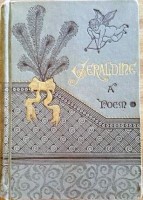
I: Of poetry and poets
II. Mellen and Isabel introduced; Isabel is interested in a Trent poem.
III. Trent writes a letter to Geraldine after having dined with Mellen and Isabel.
IV. Trent calls on Isabel again (and again); they talk about poets and poetry.
V. Geraldine is introduced.
VI. Mellen visits Geraldine and (not knowing she is engaged to Trent ) suggests that Trent is falling in love with Isabel.
VII. Trent and Geraldine meet; "more tender than common."
VIII. Trent vacations alone in the St. Lawrence islands; hears a singing voice; takes out skiff and is run down by a steamboat – Mellen and Isabel are aboard the steamboat.
IX. Trent enjoys an outing on the river with Mellen and Isabel.
X. "Days upon days of delight," Trent writes to Geraldine about them.
XI. Trent and Isabel row on the river and talk; an approaching storm.
XII. They take shelter in a cabin on an island and talk; skiff is gone in the morning.
XIII. They are searched for; the skiff is found; they are reported drowned.
XIV. Geraldine grieves.
XV. Rescued next day by a passing boat; p131 contains a passage on the need to eat: see below.
XVI. Trent and Isabel debate Trent's going or staying.
XVII. Trent leaves on a steamer; runs rapids.
XVIII. Trent continues on to Quebec.
XIX. Trent writes to Geraldine.
XX. Mellen visits Geraldine. Reinforces Isabel's interest in Trent.
XXI. Trent journeys down the St. Lawrence; writes a poem.
XXII. Geraldine reads a letter from Trent that does not mention Isabel.
XXIII. Trent and Isabel enjoy a tete-a-tete.
XXIV. Trent receives letter from Isabel; he replies.
XXV. Trent, traveling, stops in on Geraldine.
XXVI. Trent again meets Isabel, "by chance."
XXVII. Trent travels West, thinking about Isabel and Geraldine.
XXVIII. Trent, in a mining town, picks up letters from Isabel and Geraldine; Geraldine's letter informs him that she gives him up.
XXIX. Trent finds a dying man in a canyon: Isabel's long-departed husband (who abandoned her because she had shown her "5th cousin" Mellen too much attention).
XXX. Mellen visits Geraldine; makes clears his passion for her.
XXXI. Trent, unwell, in the mountains.
XXXII. Trent, revived by a storm, comes near dying for lack of water.
XXXIII. Trent calls on Isabel; describes her husband's death and returns his wallet.
XXXIV. Trent recovering his health; writes two poems.
XXXV. Trent performs in Rivernet; reconnects with Geraldine; finis: Mellen's and Isabel's marriage is announced in newspaper.
All of the editions published before 1897 were published with no mention of Hopkins' name on title pages (nor elsewhere in the book) nor released in publicity. The identity of the author became a substantial matter in itself, with many guesses in reviews and frequent queries to the editors of literary magazines. It was correctly reported in a few relatively obscure bibliographical sources, but Osgood, the Ticknor principals, the Houghton Mifflin editors, and Hopkins himself, carefully preserved their silence until 1897.
However, Hopkins was born March 27, 1843. Lucile was published in the spring of 1860. If the date of his "resolve" was "much before" 1860, the idea came to Hopkins while he had yet to attain the age of 17! This is possible since he did publish words and music for several songs by 1864 (see below) -- but still seems highly unlikely.
That Geraldine closely tracks Lucile is demonstrated by this passage, p130-131, reminiscent of one of Meredith's most durable verses: See Lucile Canto II, Book I, Verse XVIII-XIX:
----------------------------------- And faint
With their fasting, no longer inclined to complaint,
They had languidly noted the beauties abounding,
The merriment over the still water sounding,
And heeded but little the comment they caused.
When at length the slow steamer reluctantly paused
At a rickety wharf, they went gladly ashore,
While the vessel backed off, and its proper course bore
Further on.
------------- Man is mortal. There's nothing so tells
Of mortality, nothing so certain repels
The romance of our being, the essence and spirit
Of life, as the hunger that feeds it. Men fear it,
And flee it; and yet in their folly they nurse it
With spices and tonics, till wretched they curse it,
And die of dyspepsia and doctors. The greed
Of the animal dominates over the need
Of the heart and the brain. And all sentiment waits
Upon hunger; is happy or hurt as the fates
Of the stomach decree. The day's measure is dinner.
Man loves like a saint; but he eats like a sinner,
Forgetting his love till his appetite flies,
But remembering well when capacity cries
To be spared.
---------------- At a quaint little inn they were greeted
By fare not too fine, when at last they were seated
Before it. But hunger for diet the meanest
Gives sauce that is lively, and relish the keenest.
They ate as if love were a manna untasted
In wilderness ways; as if hearts had but hasted
Their good to forget, or the lingering pain
Of their sorrowful hurt in a marvelous gain.
Houghton & Mifflin's "outing" of Hopkins for the 1897 edition
Transcribed from publications in the Houghton Mifflin Archive, Houghton Library, Harvard University. Damage makes some words indecipherable..
“Who Wrote “Geraldine”? [Houghton, Mifflin pamphlet, dated in pencil Jan. 15 ’97]. One very well-kept literary secret is revealed at last. Messrs. Houghton, Mifflin & Co. announce the authorship of “Geraldine.” It was published, anonymously, some fifteen years ago, and called forth to an unusual extent both praise and criticism. It was compared with “Lucile,” high critical authority pronouncing it equal in descriptive art and poetic power to that famous poem by Owen Meredith, and superior in moral tone. Its pictures of scenery down the St. Lawrence, up the Saguenay, and in the Rocky Mountains, won general appreciation, and suggested the handsome illustrated editions which later appeared, under the supervision of special artists, who visited the scenes which the poem describes. In various styles, both cheap and expensive, with and without illustrations, it has had a large and steady sale ever since, and its hold on popular favor appears to be permanent. No narrative poem from an American pen has better held its own for so long a period. Dr. Holland was originally credited with its production, and it has been attributed to Will Carleton and others. Its author is Alphonso A. Hopkins, well known as an editor in Rochester and New York […] years a popular lecturer in many States. Thousand of [people have?] heard him recite the legend of St. Thomas, from “Ger[aldine” never?] dreaming that the lecturer was the author of that metri[cal… verse?] It is said that he liberally mingles with his prose utter[ances …] effective verse, not often published, and seldom claimed […] He has held high position as professor in a Southern U[niversity]. [Note: the verso of this leaf is pasted into a scrapbook in such a way as to obscure the last words of several lines of text.]
Sept 16 1899 HM Trade Announcement: “Geraldine. / A Souvenir of the St. Lawrence. By A. A. Hopkins. New Edition. With Illustrations. 1 vol. crown 8vo, $1.50. / This capital story in verse, which has often been compared to Owen Meredith’s “Lucile,” for years enjoyed a remarkable popularity, although none of its thousands of readers knew who was the author. The wide acquaintance of Mr. Hopkins and the many attractions of the story, the charm of its poetic qualities, and its association with the St. Lawrence River gave “Geraldine” a strong hold on popular favor. A new edition is now ready, bound in attractive style, and illustrated with many effective designs from nature.
A FOUR-PAGE, UNDATED PAMPHLET:
[Cover] Readings from “Geraldine” / A Souvenir of the St. Lawrence / “A profoundly fascinating romance of the Thousand Island, with glowing descriptions of scenery and nature, which have been commended by many of the foremost American critics. The story is a skillful study of the higher emotions exemplified by characters full of intense life and vitality, and yet perfectly typical, each in his way, and entirely modern and American. Whoever reads this song of love and adventure is sure of seeing the Thousand Islands with the eyes of a poet, revealing new beauties in familiar scenes.” / by the Author / Alphonso Alva Hopkins / “A Charming Entertainment”
[verso] DELIGHTFUL READNGS / “A Large Company Listens to Professor A. A. Hopkins.” / Over one hundred persons gathered at the delightful home of Mrs. Arthur Clinton last evening to listen to readings by Prf. A. A. Hopkins from his famous narrative poem “Geraldine.” This book has been before the public for fifteen years, but Professor Hopkins never told his most intimate friends that he was the author until a few months ago, when the long-kept secret was given to the public through his publishers. His readings last evening were very fine; his success as a reader, as well as an author, was demonstrated. – The Elmira Daily Gazette.
There was no disappointment on the part of any who assembled last evening at the beautiful home of Mr. and Mrs. Arthur W. Clinton, to hear the readings from the poem “Geraldine” by the author. A large and brilliant company assembled, and were more than pleased, were enthusiastic in approval. The music rendered was unusual and gave great pleasure. Professor Hopkins accompanied Mrs. Krowl and Mrs. Baker on the piano, during the singing of certain selections from “Geraldine” which have been set to music. – Elmira Daily Star.
A large company enjoyed a delightful literary and musical programme. – Professor Alphonso A. Hopkins, author of “Geraldine,” reading portions of his own work. His readings last evening were exceptionally fine, especially his rendition of passages descriptive of the St. Lawrence. At the close of the readings much applause was given. – Elmira Daily Advertiser.
[page 3 recto] PRESS COMMENDATIONS OF “GERALDINE” / The narrative power of the author is pronounced. – Sunday School Times. / Higher in its stern lessons of duty, stronger in its pure teachings of a gracious Christianity than “Lucile.” – The Critic. / Full of rare literary excellence. – Journal of Education. / The profound character studies, the magnificent display of natural scenery, prefigure a wide popularity for the new epic of love. – Boston Commercial Bulletin. / The story of a poet by a poet. … There is in the poem much beauty of thought, much grace of expression, much strength of purpose. The wonder is not in these, however, but in the analysis of the poet’s nature, in the revelations of the dreamer’s inmost thoughts. – Chicago Inter-Ocean. / Glows with imagery and delicate beauty. – Albany Express. / Whoever the author, he will have many friends to shower praise for him when his name stands revealed. – Rochester Morning Herald. / Not only a pretty and clever story, but a genuine work of poetical art and genius. – Central Christian Advocate. / A casket containing many rich gems. – The Golden Rule. / A metrical romance of striking merit. The verse is rhymed, flowing, and vigorous; the thoughts are worthy of the masterly expression given them; and the ability of the poet and man of letters is apparent throughout the poem. – Episcopal Register. / Those who love the exquisite in thought and expression should read “Geraldine.” – Pacific Christian Advocate. / A tale of genuine power, told with unquestionable poetic felicity and tact. – Christian at Work.
[Page 3 verso pasted down; it may be blank]
Brief Biographies of Hopins
The Biographical Dictionary of America, vol 5. HOPKINS, Alphonso Alva, author, was born at Burlington Flats. N.Y., March 27, 1843; son of Alvah and Mercy (Hale) Hopkins grandson of Daniel Dewey and Harmonia (Babcock) Hopkins; great-grandson of Stephen and Rhoda (Dewey) Hopkins, and a descendant of Stephen Hopkins, of Rhode Island. He received his education at Hamilton. N.Y., academy, engaged in newspaper work, and was editor of the Rural New Yorker, American Rural Home and American Reformer successively, 1867-85. He lectured on literary, temperance and economic topics from 1868; was vice-chancellor and professor of political economy at the American Temperance university, Tennessee, 1893-95, and received the degree of Ph.D. from there in 1895. He was prohibition candidate for governor of New York in 1882, and editor of the Defender, 1898-99: and is the author of Asleep in the Sanctum and Other Poems (1876): His Prison Bars (1878); Our Sabbath Evening (1878); Waifs and Their Authors (1879); Geraldine (a novel in verse, published anonymously) (1882); Sinner and Saint (1883); Life of General Clinton B. Fisk (1888); Wealth and Waste (1895), and numerous prohibition pamphlets.
Prabook.com. Alphonso Alva Hopkins, American author, was born on March 27, 1843 in Burlington Flats, New York, United States. Son of Alvah and Mercy (Hale) Hopkins. Education: Academic education; Doctor of Philosophy., American Temperance U., Tennessee, 1895. Career: Editor Rural New Yorker, American Rural Home and American Reformer, 1867-1885. Was vice chancellor and professor political economy, American Temperance U., 3 years Lecturer on literature, temperance and economics topics, since 1868. Prohibition candidate for government New York, 1882. Author: Geraldine (a novel in verse, first published anonymously), 1882. His Prison Bars, 1878. Sinner and Saint, 1880; Life of General Clinton B. Fisk, 1888. Wealth and Waste, 1896. Ballads of Brotherhood, 1900. Profit and Loss in Man, 1909. The Bugle of Right, 1913. Editor The National Advocate. On editorial staff Funk & Wagnalls Company Address: Cliffside, New Jersey. Connections: Married Adelia R. Allyn, 1867. Married second, Emma M. Santee, 1897. Father: Alvah Hopkins. Mother: Mercy (Hale) Hopkins. Spouses: Adelia R. Allyn, Emma M. Santee
Politicalgraveyard.com: Hopkins, Alphonso Alva (1843-1918) — also known as Alphonso A. Hopkins; A. H. Linton — of Rochester, Monroe County, N.Y. Born in Burlington Flats, Otsego County, N.Y., March 27, 1843. Editor, American Rural Home (weekly newspaper), 1871-84; lecturer, university professor;; Prohibition candidate for U.S. Representative from New York, 1874 (30th District), 1876 (30th District), 1878 (30th District), 1900 (29th District), 1912 (15th District); Prohibition candidate for New York state comptroller, 1875; Prohibition candidate for secretary of state of New York, 1879; Prohibition candidate for Governor of New York, 1882; Prohibition candidate for New York state senate 17th District, 1914. Baptist; later Congregationalist. Died in Cliffside, Bergen County, N.J., September 25, 1918 (age 75 years, 182 days). Burial location unknown.
Relatives: Son of Alvah Hopkins (1805-1898) and Mercy (Hale) Hopkins (1805-1895); married 1867 to Adelia R. Allyn; married, February 17, 1897, to Emma M. Santee (first cousin of Jerry E.B. Santee); third cousin twice removed of Jonathan Brace (1754-1837); fourth cousin once removed of Thomas Kimberly Brace.
Political families: Hotchkiss family of Connecticut; Ingersoll of Connecticut; Yale family of Connecticut; Huntington-Chapin-Waterman family of Connecticut; Buckingham-Hotchkiss family of Connecticut; Cleveland-Washburn-Harlan family of Connecticut; Taintor-Bulkeley-Morgan-Kilbourn family of Connecticut; Sante-Brace family of New York; Bronson-Ingersoll-Lathrop-Brace family of Connecticut; Taintor-Brace-Hotchkiss-Sage family of Connecticut; Seymour-Roosevelt family of Connecticut (subsets of the Two Thousand Related Politicians).
See also OurCampaigns candidate detail.
The Writings of Alphonso Alva Hopkins, 1843-1918 (as condensed from NUC Pre-1956 volume 254, pages 232-234, digital version at HathiTrust.com and other sources
In the 1860s, Hopkins published a number of songs, including the following (available digitally on HathiTrust):
Missing. [noted on other [1865] pieces]
Home Again Bear Him. Poetry by Prof. A. B. Campbell, A. A. Hopkins [1864]
Silver Bell Waltz. Composed by A. A. Hopkins [Rochester: Shaw, 1864]
Geraldine Polka. Alphonso A. Hopkins (Rochester: Joseph P. Swaw, [1865]) "To Mrs. Della Geraldine Fisk" (New Haven, Conn.).
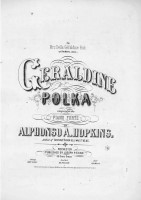
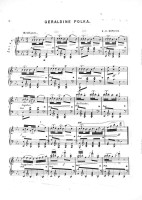
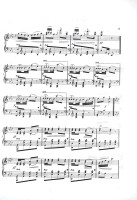
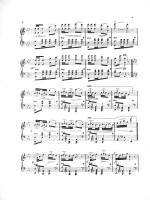
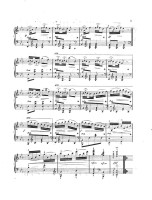
The Soldiers Return March. A.A.Hopkins (Rochester: Shaw, [1865])
Eoline, Song & Chorus. Poetry & music by A. A. Hopkins (Boston: Henry Tolman, 1866)
How Do You Do Polka. A. A. Hopkims. (Cleveland: S. Brainard's Sons, [1866])
The Oakwood Polka. Composed by A. A. Hopkins (Rochester: Shaw, [1866])
Roses Will Bloom Again By and By. Song or Duett, Poetry by L. J. Bates, music by A. A. Hopkins (Rochester: Shaw, [1866])
Singing the same old song. Poetry and music by A. A. Hopkins (Rochester: Shaw & Barnes, [1867])
When the summer Blooms Again. Words by L.J. Bates, music by A. A. Hopkins. (Cleveland: [1868])
Asleep in the Sanctum, and other poems. New York: Sheldon & Co., 1873; 1874. HT
His Prison Bars; and, The Way of Escape. Rochester: Rural Home Publishing Co.; New York: Hurd and Houghton, [1874]; [1875]; New Voice Press, 1901. [same as?] John Bremn. Boston: [1877]; John Bremn. His Prison Bars. A Temperance Story. New York: Funk & Wagnalls, 1888.
The American Rural Home [letterhead]. Rochester, N.Y. Aug. 31, 1874. Dear Mr. Hurd: / Herewith I [remit?] your press list, as requested. If there are any other papers you would specially like to send to, add them. The book is getting some very pleasant announcements nowadays. Yours very truly, A. A. Hopkins [Reference is to His Prison Bars; and, The Way of Escape. Rochester: Rural Home Publishing Co.; New York: Hurd and Houghton, [1874]. ALS, Houghton Mifflin Papers, Houghton Library, Harvard].
Newspaper Poets; or Waifs and Their Authors. Rochester: Rural Home Publishing Co., 1876. 316p. [As] Waifs, and Their Authors. Boston: D. Lothrop, [1879]; [1880]. HT/HT
Our Sabbath Evening; Home Meditations in Prose and Verse. D. Lothrop & Co., [1880]. Digital copy on Internet Archive
Geraldine: A Souvenir of the St. Lawrence. SEE: 1881 to after 1909.
Sinner and Saint. A Story of the Woman's Crusade. A Novel. Boston: D. Lothrop & Co., [1881]; New York: Funk & Wagnalls, 1888; Chicago: New Voice Press, 1902.
The Powers Fire-Proof Commercial and Fine Arts Buildings. Rochester: E.R. Andrews, 1883.
The Life of Clinton Bowen Fisk. With a brief sketch of John A. Brooks. New York: Funk & Wagnalls, 1888; 1890.
In Memoriam: Clinton B. Fisk, December 8, 1828-July 9, 1890. [Memorial address delivered at Harriman, Tennessee, August 7, 1890]. New York: Funk & Wagnalls, 1890. 15p.[Harriman, near Oak Ridge, was a temperance town founded 1889. Fisk University in Nashville is named for C.B Fisk (which he helped found and endowed)].
Wealth and Waste. The principles of political economy in their application to the present problems of labor, law, and the liquor trade. New York: Funk & Wagnalls, 1895. New York: New Lincoln Chautauqua Ed. Rev., 1910.
Prohibition from the Front Porch. An Echo of the McKinley Campaign. An Address delivered at the Prohibition State Convention of New York in Syracuse, September 7, 1897. J.B. Lyon, 1897. 32p.
Ballads of Brotherhood. New York: [copyright 1900], 84 p. HT; Montreal: The Abbey Press, 1901.
Profit and Loss in Man. New York and London: Funk & Wagnalls, 1909.
The Bugle of Right; What the Old Flag Said and Other Poems of the New Patriotism. New York: Funk & Wagnall's Co., 1913
Our Army and How to Know it. New York: 1918.
Title misattributed to Hopkins [in NUC Pre-56 by ViU=University of Virginia and PU=University of Pennsylvania]: The Triumphs of Duty; or, The Merchant Prince and His Heir. A Tale for the World. By the author of "Geraldine," "A Tale of Conscience," Etc. Boston: P. Donohue, 1863. 392p. [Patrick Donohue, 1811-1901, Boston publisher of (Catholic) The Pilot (weekly newspaper) and magazines. This appears to be a confused NUC entry: Geraldine: A Tale of Conscience by E.C.A (= Elizabeth [sometimes Ellen or Emily or Eleanor] Constantia (or simply "C.") Agnew, 1798- ), is a three volume novel published in [1819?] which went through a number of editions into the 1860s. Story line (per WorldCat): "A woman leaves the Church of England for Catholicism, ultimately deciding to become a nun."
Last revised: 23 January 2021